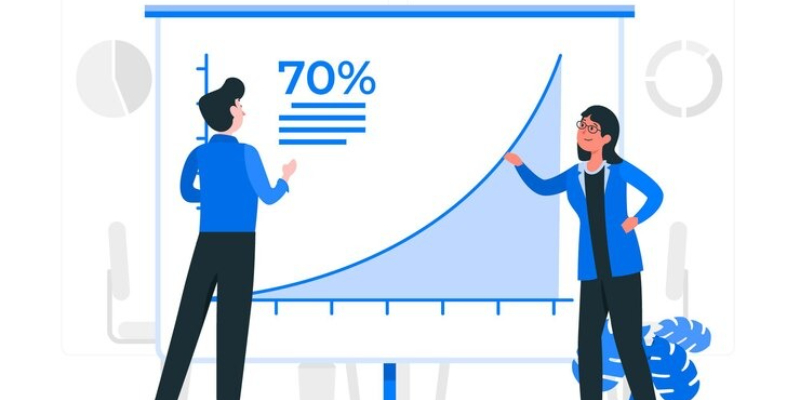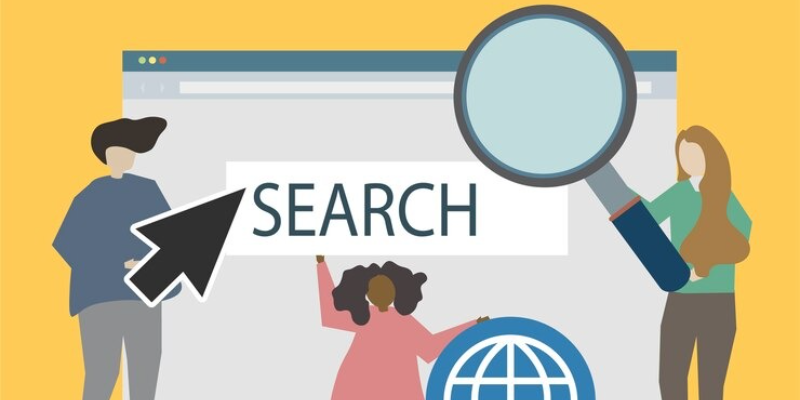

One of the most potent strategies combining SEO with PPC has primarily been aimed at maximizing the effects of digital marketing efforts. These two strategies differ mainly because while SEO refers to organic search rank and long-term growth, PPC is all about attaining instant targeted online visibility through paid advertising. With the power of each, you could make a harmonious ensemble for marketing that converts into your online presence and drives more focused traffic to your website.
Getting organic reach is a long-term SEO play. You will see great results after months, but once you start ranking well, you will enjoy constant traffic without any repeating payments (except for content creation, link building, etc. PPC gives instant online visibility. You can target specific and relevant keywords, and you can target the target demographics as well. The ads will appear at the top of the Search Engine Results Pages (SERPS).
A high chance of seeing something several times increases brand awareness and trust of any site organically ranking for a term, such as Google Ads.
SEO is centered around ranking on high-value, high-intent terms via organic content, page optimization, and ultimately, backlink acquisition. PPC gives you the option to bid on extremely competitive and relevant keywords. For example, ones you won't rank for immediately with SEO.
One of the good things about PPC campaigns is that you might quickly realize which keywords give the best ROI. All this information can be fed back to your SEO strategy, so you know which are the high-converting keywords to aim for when it comes to organic ranking. Alternatively, you could use SEO to target long-tail keywords that would be cheaper in your PPC campaigns.

SEO can help make a website more user-friendly, faster, mobile-friendly, and also full of relevant content, which might indirectly boost conversion rates in the long run. Using PPC allows you to fine-tune ad copy, landing pages, and offers in the pursuit of more successful conversions almost immediately.
Leverage the data from PPC campaigns, such as ad copy performance and the landing page's effectiveness, to optimize your SEO pages for better user experience and conversions. Take keywords with high PPC conversion rates and play up in your organic content, which helps increase organic conversion potential as well.
SEO is slow because you optimize pages over time and measure your progress. Most SEO strategies are data-driven, but the testing speed is slower. With PPC, you could test different ad copies, headlines, and landing pages in real-time. The results are pretty close to immediate, making it possible to test much faster.
Leverage PPC to test your landing pages and messaging quickly. Then, if you see what works with headlines or offers in PPC, apply the same strategies to your SEO content. That way, you'll save time and are not left hanging on organic metrics to continually improve your site.
All of this simply communicates authority and reliability to the user as much as it does to the search engines. Often, the outcome is more natural and long-lived. While ads will give a user more visibility and more hits, some will be skeptical about paid advertising results, and they tend toward organic listings.
When SEO and PPC are run together, credibility is increased because users look at organic listings overlapping with paid ads from the same brand, strengthening the thought that the business is big and legitimate in the industry.
Local SEO ensures your business ranks well on relevant local searches and increases your visibility in your locality. With PPC, you can target local keywords or set specific geographic parameters to run ads in targeted areas.
Local SEO will get your business to rank naturally for local search terms, while PPC allows you to hyper-target locations and audiences. So a small business may be ranking for its local terms organically, but at the same time, it can run paid campaigns to capture quicker leads from close customers.
Organic traffic data and user behavior metrics like time on site, bounce rate, etc. help you understand which content is performing well and which keywords are being used. Information in terms of PPC about your audience can be derived from the CPC, return on ad spend, and conversion metrics that help to give actionable insights pertaining to your audience's preferences and behavior.
You can optimize your overall marketing strategy through better refinement based on data from both channels. For instance, if you notice keywords performing well in PPC, you can optimize your SEO content to target the same keywords for better organic traffic. Besides, analyzing performance data between SEO and PPC can create very targeted content and campaigns.

With SEO, organic visitors, but not all of them are gonna convert immediately. Some will leave your site without even taking that action. When it comes to PPC, especially display ads and remarketing campaigns, you can target visitors who didn't convert during the first visit.
Once your SEO strategy brings in organic visitors, you can retarget them using PPC with tailored offers, thereby increasing their chances of converting.
Share Data Across Teams: If your SEO and PPC efforts are managed by different teams, make sure they're sharing data. PPC insights about high-converting keywords can influence SEO decisions, and SEO insights can improve PPC targeting.
Use PPC for competitive, high-intent keywords while organizing your organic efforts for long-tail, niche keywords.
Use PPC ad campaigns to test keyword performance and landing page elements. This can help inform your SEO strategy and ensure you’re optimizing for keywords that convert.
Ensure that your landing pages are optimized for both organic traffic and paid advertising. This can involve A/B testing, adjusting copy, and ensuring the landing page is fast and mobile-friendly.
Drive users who have already encountered your site by means of SEO to retarget them through PPC remarketing campaigns.
As SEO and PPC ad campaigns run parallel with each other, brands can reach the maximum level of online visibility with enhanced performance and at optimum use of the marketing budget. With the benefits of both, a holistic and performance-based strategy can be developed in digital marketing.
Digital Marketing Synergy
Digital marketing synergy, simply put, is the combination of different digital marketing strategies and tools in a way that makes them work better together, with more efficiency than if they were to be used separately.
Imagine this as a team effort—each member plays a certain position, but when they come together, the team really performs. The "players" in digital marketing might include things like SEO (Search Engine Optimization), PPC (Pay-Per-Click) advertising, social media marketing, email marketing, content marketing, and many others. When these individual strategies combine in a harmonious manner, they support and amplify each other.
By combining SEO and PPC ads, you can get optimum results. Bud is a digital marketing agency in Bangalore that can help you run successful PPC ads and perform SEO with the help of our digital marketing experts, who can get maximum results. Apart from being a well-known PPC agency in Bangalore, Bud also provides SEO services in Bangalore.